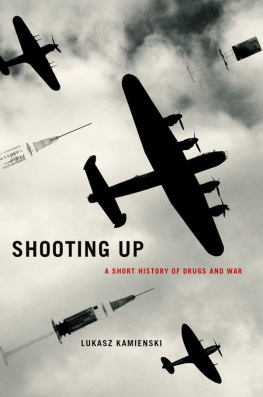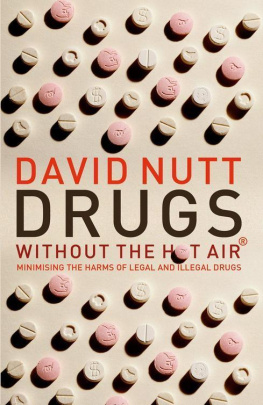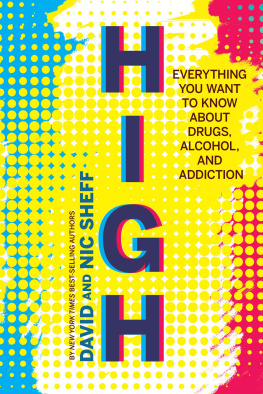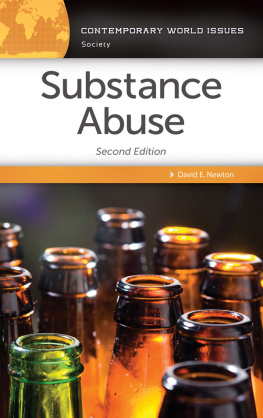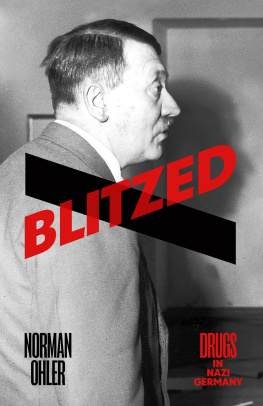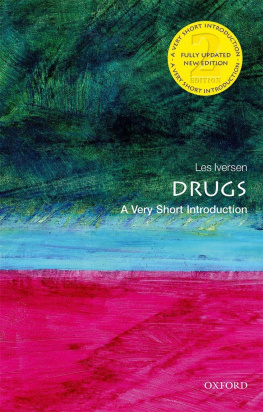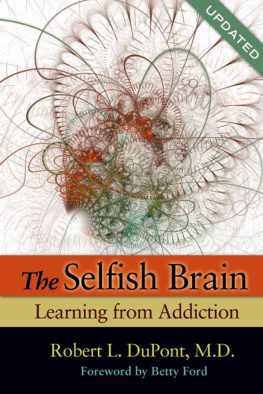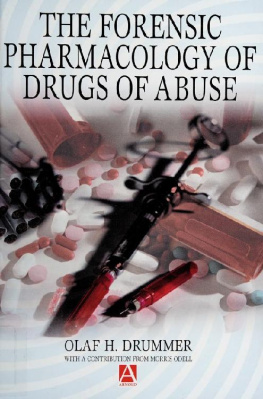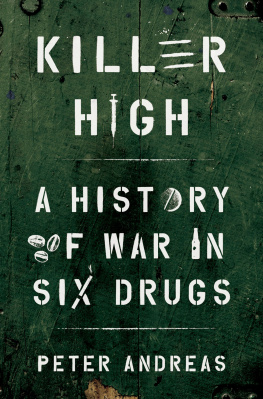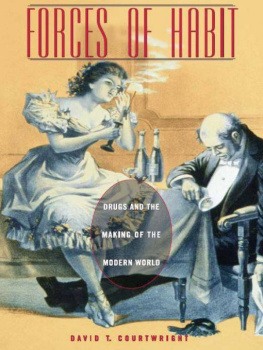Shooting Up
Shooting Up
A Short History of Drugs and War
UKASZ KAMIESKI


Oxford University Press is a department of the University of Oxford. It furthers the Universitys objective of excellence in research, scholarship, and education by publishing worldwide. Oxford is a registered trade mark of Oxford University Press in the UK and certain other countries.
Published in the United States of America by Oxford University Press
198 Madison Avenue, New York, NY 10016, United States of America.
ukasz Kamieski 2016
All rights reserved. No part of this publication may be reproduced, stored in a retrieval system, or transmitted, in any form or by any means, without the prior permission in writing of Oxford University Press, or as expressly permitted by law, by license, or under terms agreed with the appropriate reproduction rights organization. Inquiries concerning reproduction outside the scope of the above should be sent to the Rights Department, Oxford University Press, at the address above.
You must not circulate this work in any other form and you must impose this same condition on any acquirer.
Library of Congress Cataloging-in-Publication Data
Names: Kamieski, ukasz.
Title: Shooting up: a short history of drugs and war / Kamieski, ukasz.
Description: New York, NY : Oxford University Press, [2016] | Includes bibliographical references and index.
Identifiers: LCCN 2015040597 | ISBN 9780190263478 (hardcover) | eISBN 9780190263492
Subjects: LCSH: Medicine, MilitaryHistoryMiscellanea. | SoldiersDrug useHistory. | Drug utilizationHistory. | Drug abuseHistory. | Military art and scienceMiscellanea. | Military historyMiscellanea.
Classification: LCC RC971 .K34 2016 | DDC 616.9/8023dc23 LC record available at http://lccn.loc.gov/2015040597
The book was originally published in 2012 in Polish by Jagiellonian University Press. This is an edited version translated by ukasz Kamieski (pp. xv157, 243262), Michelle Atallah (pp. 58227), and Maciej Czuchra (pp. 227314).
Of all of civilizations occupational categories, that of soldier may be the most conducive to regular drug use.
D. T. Courtwright, Forces of Habit: Drugs and the Making of the Modern World, 2001
The happy warriors. They all sounded as if they were a little drunk. And they were, though it was on the excitement of the event rather than on alcohol.
P. Caputo, A Rumor of War, 1996
CONTENTS
DETAILED CONTENTS
Who will ever relate the whole history of narcotica?It is almost the history of culture of our so-called higher culture.
Friedrich Nietzsche, The Gay Science
Carl von Clausewitz, the greatest and most influential Western thinker on war, reminds us that chance is the very last thing that war lacks. No other human activity is so continuously or universally bound up with chance. I would argue that academic research is another human activity that is often closely bound up with chance; this study is a product of it. The idea for the book was born unexpectedly as a side effect of my other research on the emerging and future applications of biotechnologies designed for military enhancement (namely psychopharmacology, neuroscience, and genetic engineering). Working on the topic of the Pentagons search for a magic bullet drug that could revolutionize soldiers performance and mood, I was quick to discover that no thorough examination of the history of drugs in combat had yet been written. The same is true even of alcohol, the oldest and most popular military intoxicant. Thus I hope my book will provide some context of the present-day and potential future applications of psychopharmacology in warfare. For as the great eighteenth-century Neapolitan philosopher Giambattista Vico teaches us, only by studying history can we better understand the practices, events, and ideas that shape our own times. What Vico propounded was that we need to go back to the origins of contemporary phenomena or processes should we wish to grasp them.
What is this book about? When one thinks of the two words drugs and war, one almost automatically links them into the war on drugs, that is, the coordinated efforts to limit the production, smuggling, trade, and consumption of illegal substances both at home and abroad. This volume, however, is not a study about the war on drugs but an attempt to understand the roles that drugs have played in warfare. It is about warriors and soldiers, governments, armed forces, and militant groups of various types making the most of intoxicants. It is a social, cultural, and political history of psychoactive substances on the battlefield.
It is often said that human history is a history of war. This is certainly an overstatement, yet it is true that one of the features of our history is the enormity of the wars humans have fought. I would contend that one of its other vital characteristics is intoxication. Plentiful mind-altering substances have been used in various ways by nearly all peoples through the centuries. Producing a comprehensive history of drugs in warfare is probably infeasible, for such a work probably cannot be written due to the historical and geographical scope of the phenomenon. Mine, of course, is but one of the possible stories, a narrative written with the awareness that there are many other paths that could have been followed.
What I am interested in are potent and rather controversial substances, most of which, with the exception of alcohol, are today subject to tight state and international control regimes. I therefore do not focus on traditional and omnipresent psychoactive substances such as nicotine/tobacco and caffeine. Their use by servicemen is still allowed and does not trigger debates as does, for example, amphetamines.
What do pharmacology and war have in common? The etymology of pharmacology is usually traced back to the Greek phrmakon, which means medicament. But it is important to bear in mind that in ancient Greece the word pharmkos referred to a human scapegoat (usually a slave, criminal, or someone disabled or considered ugly) used in state ritualsin public rites of cleansing and in ceremonies aimed at ensuring the well-being and good fortune of a community. The pharmkos was manhandled, bitten, driven out, and sometimes stoned to death. So, as the Hungarian-American psychiatrist Thomas Szasz argued, the root of modern pharmacology is not drug or medicine but scapegoat. When the practice of human sacrifice was abandoned in Greece around the sixth century BC, the word pharmkos was transformed into pharmakeus and phrmakon, which came to mean, among other things, a medicine, poison, and panacea. Equally paradoxical and violating of the very life instinct is the human pursuit of intoxication motivated not by medical need but by a desire for pleasure and reward. Drugs tend to be poisonous and overdosing on them may be fatal. David Courtwright puts it particularly well:
Psychoactive plant alkaloids evolved as a defense mechanism against herbivores. Insects and animals who eat them become dizzy and disoriented, or experience hallucinations. In evolutionary terms, accidental intoxication may be valuable: it warns an organism not to go near the plant again. Seeking intoxication, let alone profiting from it, is paradoxical. It seemingly defies the logic of natural selection.
So, both intoxication and participation in combat can be seen, to an extent, as inimical to the survival of an individual.

